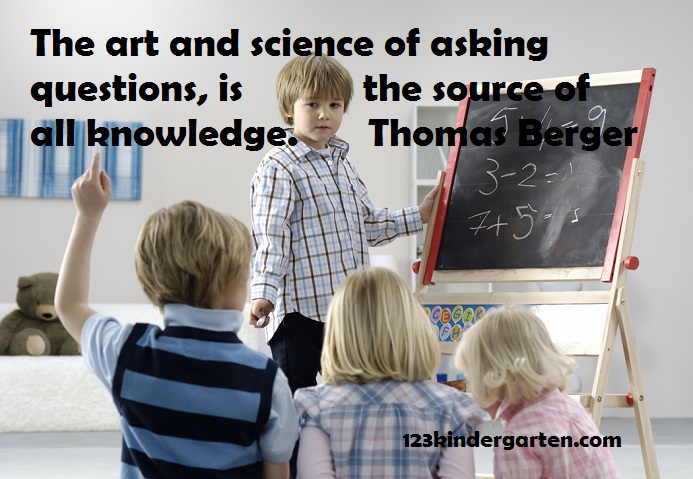When it comes to kids and asking questions, parents, caregivers, and teachers are not surprised to know kids ask about 300 of them a day! Challenging as this can be for the adults, it’s tremendously important for kids. In the words of writer Thomas Berger, “The art and science of asking questions is the source of all knowledge.”
Being able to ask questions is another great tool to make sure kids have in their off-to-school toolbox. Chances are, when kids first start school, preschool, or daycare, there will some things that are new and different. Kids will have questions. But does your child know how to ask a question and how to ask for help?
Asking questions can be complicated. We can make learning how to ask questions easier by giving kids an example to copy. For instance, if we notice a child holding out an empty cup, we can acknowledge the action. “I see your cup is empty. Would you like something in it? You can say, “More juice please,” or “Can I have more juice please?” If the child is reluctant, we can use a higher voice and pretend to be the child asking for more.
Besides the words for asking questions, kids also need confidence. At home or with someone they know, kids do this, but they may not feel they can with someone unfamiliar. We may need to directly kids they can ask their teacher if they have a question. This is both a social skill and an emotional one.
This sounds so basic, but I know from experience that sometimes 3, 4, and 5 year-olds do not remember how to ask or are afraid to. Simple and significant things like asking about the bathroom or is it really okay to play with the trains.
Letting kids see us asking others for help sends the message that it is okay. As adults, don’t we often wonder if we should ask or if it’s better not to? We have to walk the walk ourselves, not just talk the talk. For a play-of-the-day, how about Twenty or 300 Questions?
P.S. Go ahead and ask, if you have a question. This is the page with how to get in touch.

